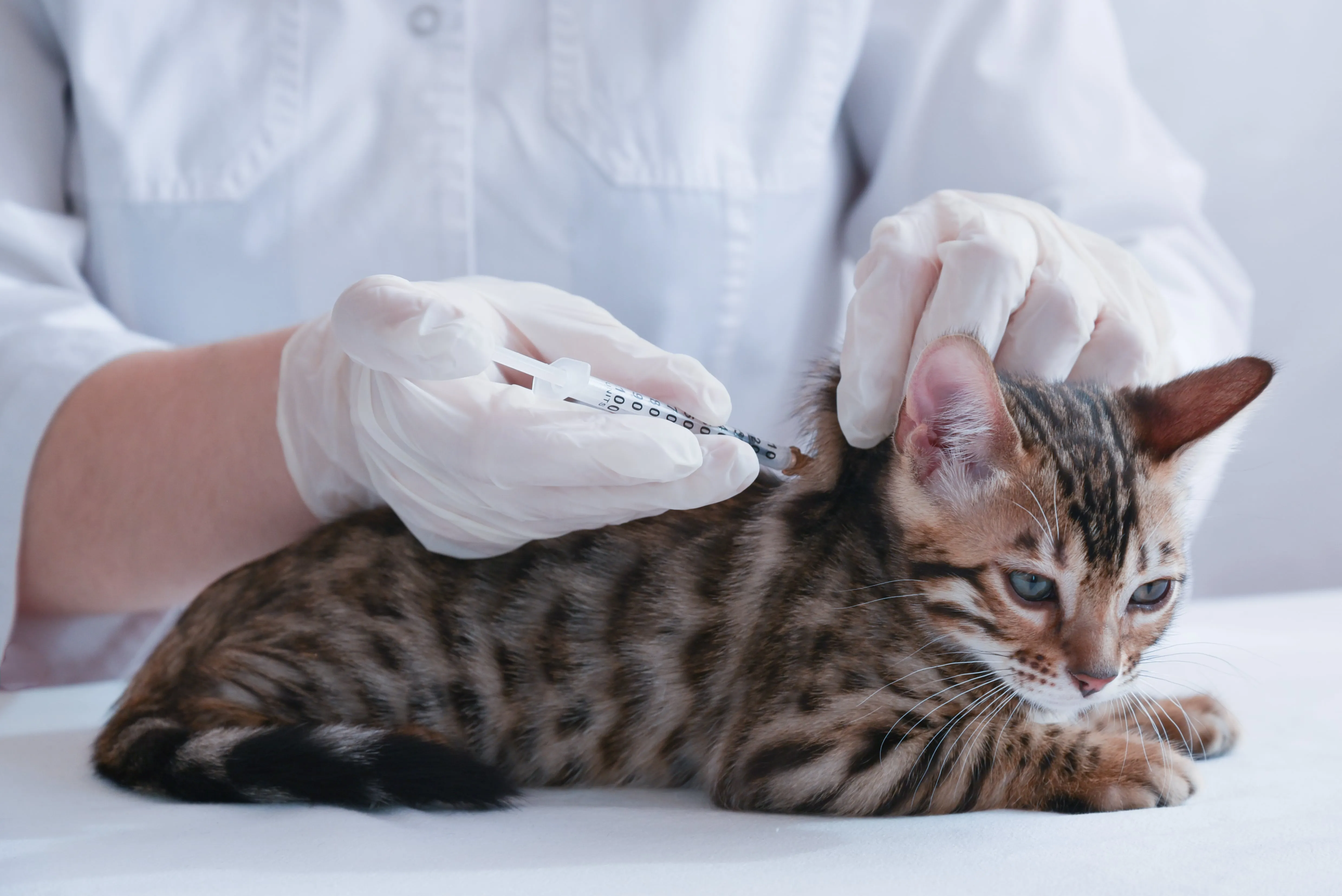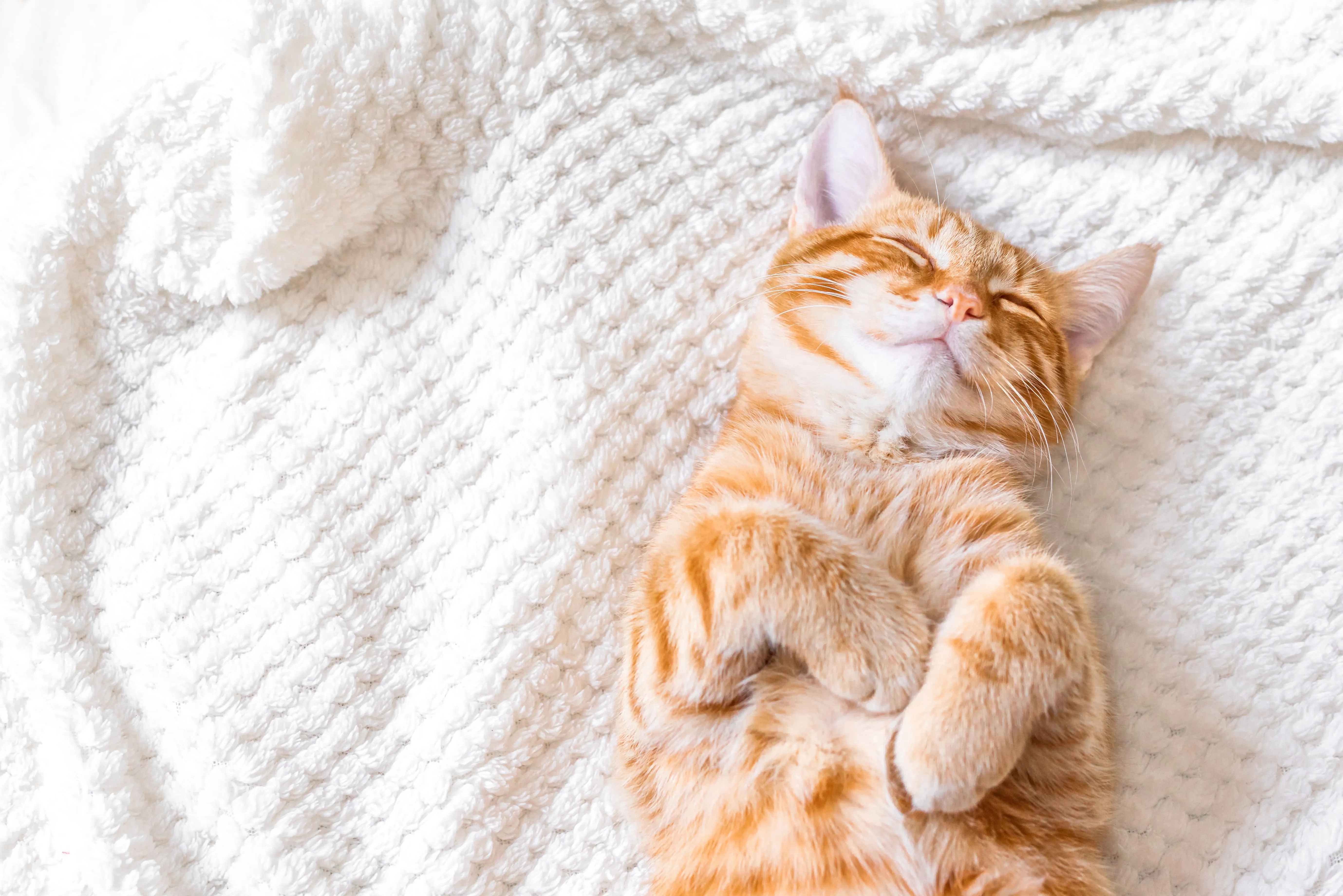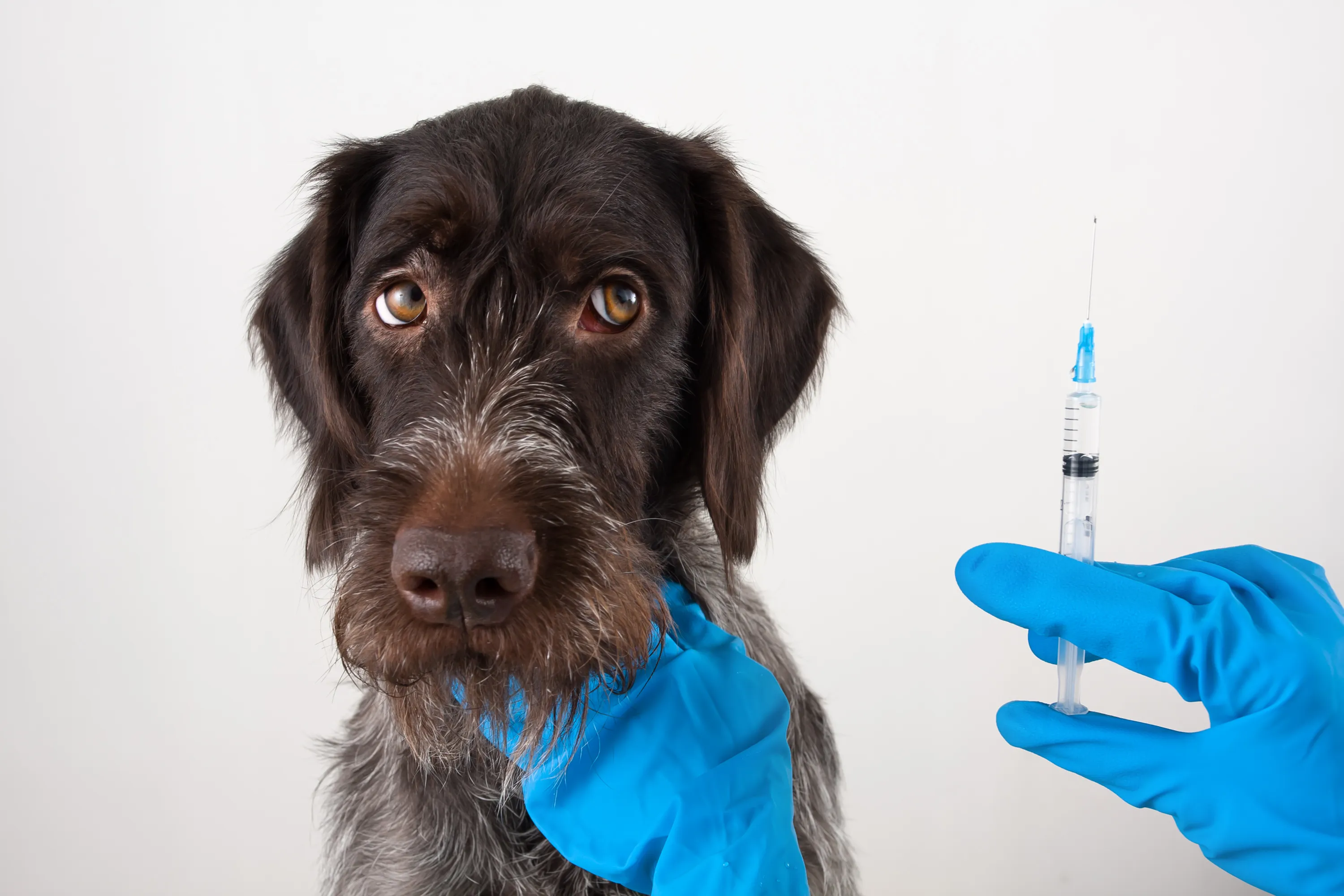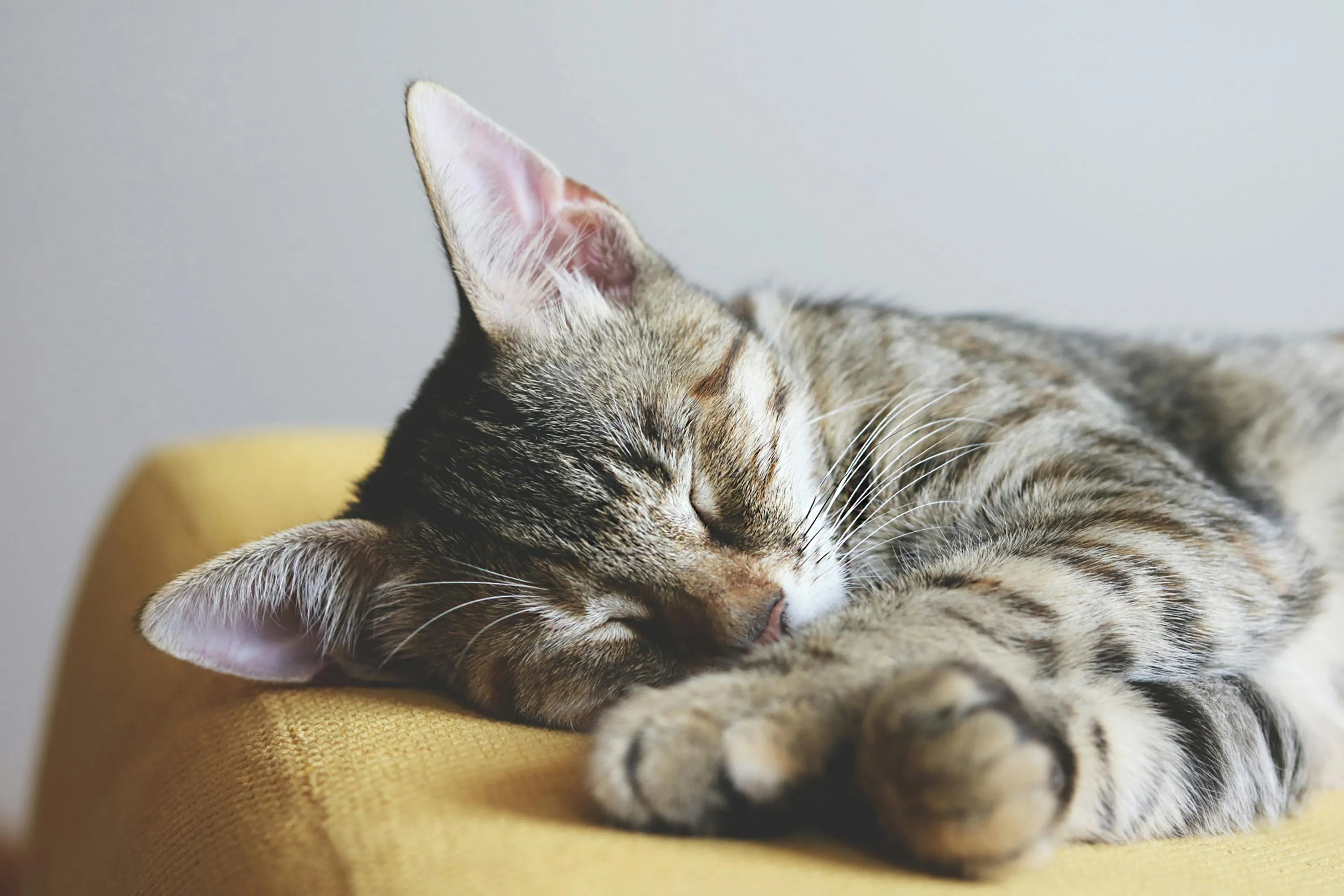Vaccinating my cat: what you should look out for
Vaccinations are one of the most important measures to protect your cat from dangerous infectious diseases. But how do vaccinations actually work? What vaccinations are there for cats? How often should my cat be vaccinated? And what are the costs of vaccinations? We answer all these questions here.

How does vaccination for cats work?
Acat vaccination acts like training for the immune system: the body comes into contact with harmless or weakened pathogen components and forms antibodies (the body's own antibodies) in response. If your cat later encounters the real pathogen, the immune system "remembers" thanks to the cat vaccination and can react immediately. This means that the pathogen is combated quickly - the disease does not break out at all or runs a much milder course. Without vaccination, antibodies have to be formed first, which takes longer and favors disease.
Which vaccinations are recommended for cats and at what intervals?
When it comes to cat vaccinations, a distinction is made between core vaccinations (recommended for all cats) and non-core vaccinations (depending on life circumstances). As a vaccination is always a strain on the body, you should follow the manufacturer's instructions exactly as to when a booster is necessary.
Core vaccinations:
- Feline panleukopenia (cat flu): This highly contagious and often fatal disease mainly affects the digestive system. The vaccination should be refreshed every three years. To avoid unnecessary re-vaccinations, the vet can check the antibody level in the blood. If the level is still high enough, the vaccination can be postponed until the following year.
- Feline herpesvirus and calicivirus: Both pathogens cause the so-called cat flu, which can lead to severe respiratory infections. An annual booster is particularly recommended for outdoor cats, cats kept in groups or in catteries.
Non-core vaccinations:
- Feline leukemia virus (FeLV/leukosis): Leukemia is an incurable viral infection that weakens the immune system of cats and can be fatal. A leukosis vaccination is particularly useful for outdoor cats or cats with regular contact with other cats. Before the leukosis vaccination, it is advisable to carry out an antigen test to rule out an existing infection. The booster is usually given annually; in older cats at low risk, the leukosis vaccination intervals can be extended to two to three years. Even though the leukosis vaccination is not one of the core vaccinations, it is strongly recommended for every owner of an outdoor cat.
- Chlamydiosis: This vaccination is only administered in special cases, for example in breeding or if repeated infection problems occur in a household.
- Rabies: Rabies vaccination is not compulsory for cats in Switzerland. However, it is mandatory when traveling abroad, as many countries do not allow entry without valid proof.
When should cats be vaccinated for the first time?
Basic immunization ideally starts at 8 weeks, with further vaccinations at 12 and 16 weeks. During this time, the natural protection provided by antibodies from the mother's milk decreases - it is therefore important that your kitten builds up its own defenses. The final vaccination of the basic immunization takes place between 6 and 12 months; after that, boosters are recommended at 1-3 year intervals, depending on the vaccine.

Is vaccination compulsory for cats in Switzerland?
No. There is no general vaccination requirement for cats in Switzerland - vaccinations are recommendations that help to limit the spread of dangerous diseases. Exception: rabies. The rabies vaccination is mandatory for traveling abroad; vaccination is allowed from the 12th week of life. When traveling, you must provide proof of a valid rabies vaccination - and proof is mandatory when returning to Switzerland, even if it was not compulsory in the vacation destination.
Current regulations can be found at the Federal Food Safety and Veterinary Office (FSVO).
How much does it cost to vaccinate a cat?
The cost of a vaccination is usually between CHF 60 and 90, depending on the practice. For the basic immunization with 2-3 appointments, you should plan on a total of around CHF 180-300.
We know how important preventive care is. That's why our cat insurance not only covers preventive services such as tartar removal, but also contributes towards vaccinations.
Are there any side effects with cat vaccinations?
In general, vaccinations for cats are very well tolerated and side effects rarely occur. In individual cases, mild reactions such as tiredness or a small swelling at the injection site may occur. However, special mention should be made of the risk of so-called injection site-associated sarcomas (FISS), i.e. tumors that can develop at the vaccination site. This risk is very low, but is taken seriously by veterinary experts.

Our tip: Questions about your cat's vaccinations? Does it show unusual symptoms after the prick and you want to be sure that everything is fine? As a Calingo customer, you can chat or call a vet for free from the comfort of your own home - quickly, easily and tailored to your cat.
Are vaccinations also useful for older cats?
Yes, senior cats also benefit from vaccinations: The immune system becomes less effective with age and concomitant illnesses can increase susceptibility to infections. Vaccinations significantly reduce the risk of disease in this phase of life - which is why vaccination protection is sensible and important at any age.
Why vaccination is so important for your cat
Vaccinations are one of the most effective measures to prevent infectious diseases. They not only protect your individual cat, but also help to slow down the spread of dangerous pathogens in the entire cat population. The more cats are vaccinated, the lower the risk of diseases occurring at all or spreading further.
Conclusion
Vaccinations are one of the most important preventative measures for feline health. They protect against serious infectious diseases and prevent dangerous pathogens from spreading. If you go to the vet regularly and keep to the recommended vaccination intervals, your cat will remain as protected as possible.
The cost per vaccination is usually around CHF 60-90, depending on the practice.
After basic immunization (8th, 12th and 16th week + completion between 6-12 months), boosters are recommended every 1-3 years, depending on the vaccine. Panleukopenia usually every 3 years, herpes/calici annually (especially for outdoor/group housing); leukosis usually annually, for older low-risk cats every 2-3 years.
Yes, mild diarrhea can occur after a vaccination - usually as a short-term reaction and over within 24-48 hours. Make sure your pet has enough water and go easy on the stomach with small, easily digestible portions. If the diarrhea lasts longer, is severe (blood, vomiting, apathy) or affects a senior, please go to the vet.
There is no general vaccination requirement in Switzerland. Exception: rabies - a valid rabies vaccination is mandatory for travel abroad (vaccination from 12 weeks of age, proof also required on return journey).
Start basic immunization at 8 weeks, further vaccinations at 12 and 16 weeks; final booster between 6-12 months. Thereafter, boosters are given at 1-3 year intervals, depending on the vaccine.
From pet parents for pet parents
The health of your furry nose is our job









